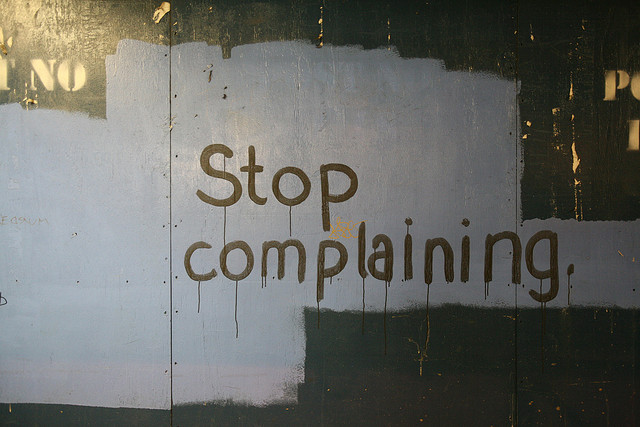Have you ever noticed that people who constantly talk about how successful they are really aren’t all that great? And how meanwhile, people who enjoy a lot of success simply keep their heads down and get to work? If you have, you’re not alone. There’s a good reason for this, too: successful people are usually too busy being successful to brag about how successful they are.
Successful people also tend to have rituals or routines that they follow — simple processes that get them through their day and help them be more efficient and productive. If you find yourself stagnant in your career yet wishing for greatness, maybe it’s time to switch up your routines. Here are ten to try.

1. Start your day in a calm way. How many times have you left yourself just enough time to shower and get dressed before rushing out the door to make it to work on time? It only takes one time to know that this isn’t a great start to the day. Instead of making your morning a losing game of Beat the Clock, give yourself time to begin the day properly. Not only will this keep your stress levels lower (especially before you get to the office), but it helps to set the tone for a more thoughtful and productive day. Give yourself a routine that’s calming. You might use the time for a quick bit of exercise of meditation, or you might take the first 30 minutes after you wake up to tack out the rest of your day, or you could use it to catch up on emails from the day before. Whatever you do, try to do it consistently to get the day started off right.
2. Stop thinking and start doing. A lot of people confuse thinking with actual working. Yes, planning is important, but successful people roll up their sleeves and get started on that big project. And if you’re waiting for the inspiration to take hold of you, well, we can find some wisdom in the words of two great artists. Pablo Picasso famously said, “Inspiration exists, but it has to find you working.” And, perhaps more bluntly, Chuck Close asserted, “Inspiration is for amateurs — the rest of us just show up and get to work.” Bottom line? Start working!
3. Find inspiration in adversity. Have you heard the joke about what happens when you play a country music song backwards? The guy gets his dog, truck, and woman back. Sure, it’s funny, but there’s a bigger message here: without all of those difficult situations, the songwriter would never have been inspired to write such a song in the first place. Successful people have their share of obstacles and heartbreak, but they’re able to take those emotions and turn them into creativity, motivation, and excellence. Rather than wallowing in depression whenever you’re faced with pain and strife, channel your feelings into something productive.
4. Find a mentor . Most successful individuals realize that they have a lot to learn from others who have come before them. They take it upon themselves to find someone who is wise and who has been there — someone who’s walked the same path and learned a lot along the way. Having a mentor keeps you from making preventable mistakes and provides you with valuable insight that can only come from years of experience. Find an individual who can mentor you in your field, and then meet regularly to learn bits of wisdom and discuss your progress.
5. Go beyond your comfort zone. This is really where growth happens, and without growth, there is minimal opportunity for success. Yes, of course it’s easiest to keep doing what you’ve been doing without trying anything new, but unless you really challenge yourself, you’ll never know what you’re capable of. No pain, no gain, right?
6. Trust your gut. Intuition, instinct, hunches, sixth sense — call this primitive feeling what you will, but heed its guidance. Yes, your decisions should be well informed, and yes, you shouldn’t close your eyes and blindly choose a direction, but you also shouldn’t go along with the crowd if you know, deep down inside, that the crowd is wrong.
7. Write down your thoughts and reflections. Time may move in one direction, but you can still learn a great deal from your past. Take some time each week (or more frequently, if you’re so inclined) to do some journaling. Write down important events and transactions, note what went well and what didn’t, and keep track of your goals, both big and small. After some time has passed, read through what you wrote a month ago, six months ago, a year ago, and more. Not only will it give you some helpful perspective, but it will create a sort of map of your professional life.
8. Take constructive criticism to heart. It’s easy to balk at or dismiss negative comments, but if there’s some buzz about your work and it’s not all good, perhaps it’s wise to step back and ask yourself why. Similarly, it may be smart to ask for feedback from individuals whose opinions you respect. When we see ourselves through the eyes of others, we are better able to make improvements.
9. Stay positive and humble. A good attitude can go very far in today’s business world. When you’re an upbeat, positive person, you attract people; after all, who doesn’t want to work with someone like that? Humility, however, is also essential; in a world filled with big egos and unchecked arrogance, humble people are refreshing. Think about the ideal type of person you’d like to work, and then make every effort to become that ideal.
10. Remember why you’re doing this. Or better yet, give yourself visual reminders of why your success is so important. Whether it’s a photo of your mentor to remind you of your potential, a letter from a loved one to remind you of your real worth, or a picture your child drew for you to remind you who you’re doing it all for, keep your reminder close, visible, and within reach every day.
We all want to be successful in work and in life, but not everyone’s routines are conducive to success. Are yours? Or are the actions that are so ingrained in your day-to-day activity holding you back from greatness? You can talk about your desire to do big things all you want, but at the end of the day, you’ve just got to do them. See if you can implement one, a few, or all of these rituals into your own life. You may really like the results.

